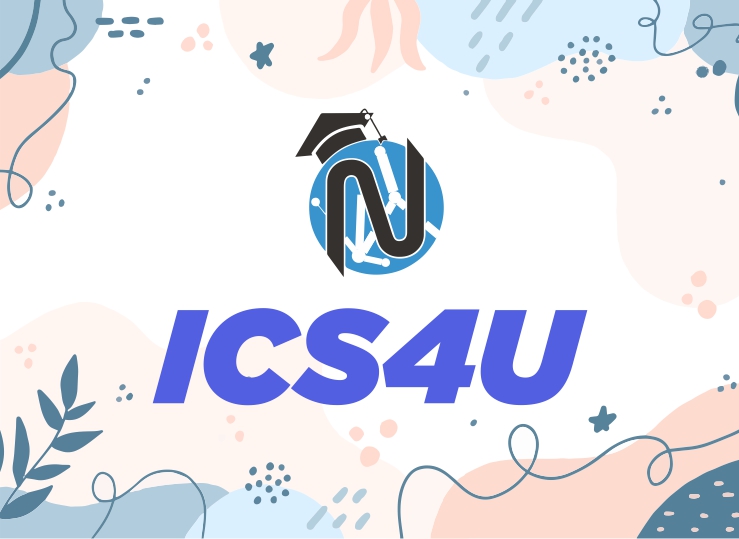
Computer Science (ICS4U)
Course Description
This course enables students to further develop knowledge and skills in computer science. Students will use modular design principles to create complex and fully documented programs, according to industry standards. Student teams will manage a large software development project, from planning through to project review. Students will also analyse algorithms for effectiveness. They will investigate ethical issues in computing and further explore environmental issues, emerging technologies, areas of research in computer science, and careers in the field.
Assessment & Evaluation of student performance
Assessment is regular and continuous and is used for the improvement of teaching and learning and not for grade reporting. Assessments will be based on both formative and summative processes.
Formative assessments are learning practices that provide important feedback to student progress. Examples include homework and quizzes.
Summative assessments form a foundation for final mark allotment at the end of the unit, term and final evaluation.
Formative assessments are learning practices that provide important feedback to student progress. Examples include homework and quizzes.
Summative assessments form a foundation for final mark allotment at the end of the unit, term and final evaluation.
Evaluation will be done after teaching by using summative assessment strategies on particular ‘chunks’ of work.
An achievement chart will be given to students at regular intervals and the purpose of the charts is to provide feedback to students in relation to content and performance strands.
An achievement chart will be given to students at regular intervals and the purpose of the charts is to provide feedback to students in relation to content and performance strands.
Assessment and evaluation in this course will reflect provincial curriculum expectations and will incorporate the use of the four categories of the Provincial Achievement Chart with each category weighted as follows:
| Knowledge and understanding | Communication | Thinking Inquiry and Problem solving | Application |
|---|---|---|---|
| 25% | 25% | 25% | 25% |
Unit Tests, Written assignments, presentations, Classroom Observations and Classroom conversations.










